Source > Cherta
This article has been auto-translated and then checked, any errors in translation are mine rather than the author’s. This article does contain descriptions that some may find disturbing. Ed ACR
Witnesses about what happened in Bucha
The name of this wealthy suburb of Kyiv has become synonymous with cruelty to civilians and war crimes of Russian troops in Ukraine. Now Bucha is returning to life, but it will not be the same again – as the correspondent of ” Features ” was convinced, who went there and talked with its inhabitants.
“We were walking through a mined field”
“ My father Alexei Evdokimenko was killed in Bucha on March 3rd. We know that he is dead, but we still cannot bury him,” says Vadim. His father hid from shelling in garages not far from home. On March 3, he went out for firewood for the potbelly stove and did not return.
Eyewitnesses told Vadim that he and three other men were kidnapped by the Russian military. Later they found a charred body with signs of torture. Hands cut, eyes gouged out, stomach cut open. They were able to identify him only by the bank cards found nearby and a work pass. Witnesses told the family that the military locked him and six others (both dead and alive) in a garage on Steklozavodskaya Street and burned them.
The family wanted to bury Alexei, but due to confusion, for a long time, they could not find which morgue the body was taken to. Then it turned out that his remains were needed for the investigation. He was 42 years old, he worked as an installer at a military plant. Antonov in Gostomel.
Bucha was a convenient, beautiful and developed suburb of Kyiv with green parks, shopping centres, an abundance of street musicians and concerts. Now shopping centres have been shot and blown up, and along the road to Kyiv, there is a cemetery of burned and mangled cars, some of which were shot during the evacuation along with passengers. Nearby are lined Russian tanks. In some places, people continue to live without communication, cooking food on the street, and packs of feral dogs run along the roads. The dogs, abandoned by their owners, ate human meat from the bodies of the dead Buchans, who had lain on the street for weeks. There were cases of dogs attacking living passers-by – now they are afraid of four-legged people. “We thought that the war would pass us by, but it didn’t,” say the locals.
Vadim Evdokimenko is twenty, he lives with his mother and grandmother in Bucha, works in Kyiv and studies to be a hairdresser. Slim, in a sports jacket and cap, dispassionately tells his story, talks at length about details and recalls poignant moments. Taking into account the experience, he is very steadfast and says that he goes to work and this helps. Colleagues provide moral support. Vadim’s house on Steklozavodskaya Street is a few minutes drive from the centre, near the interchange – the roads to Gostomel and Irpin.
After the start of the war, they first waited out the shelling in a bomb shelter, but from the dust and stuffiness, the grandmother began to suffocate. We decided to stay in the apartment on the sixth floor during the rocket attacks, we slept on the floor in the corridor. In a neighbouring house, two pensioners were killed by a shell and a fire, they were unable to get out of it.
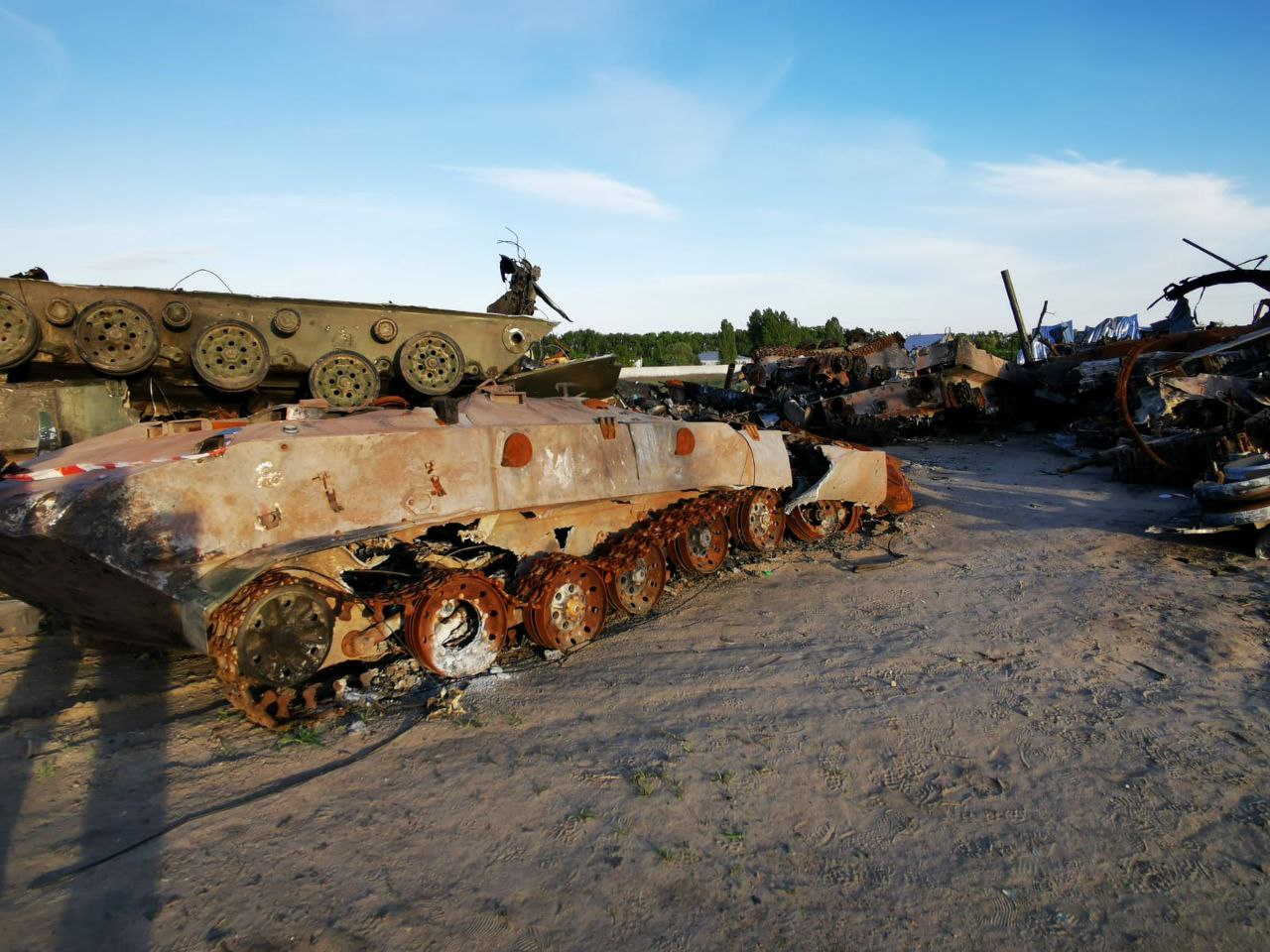
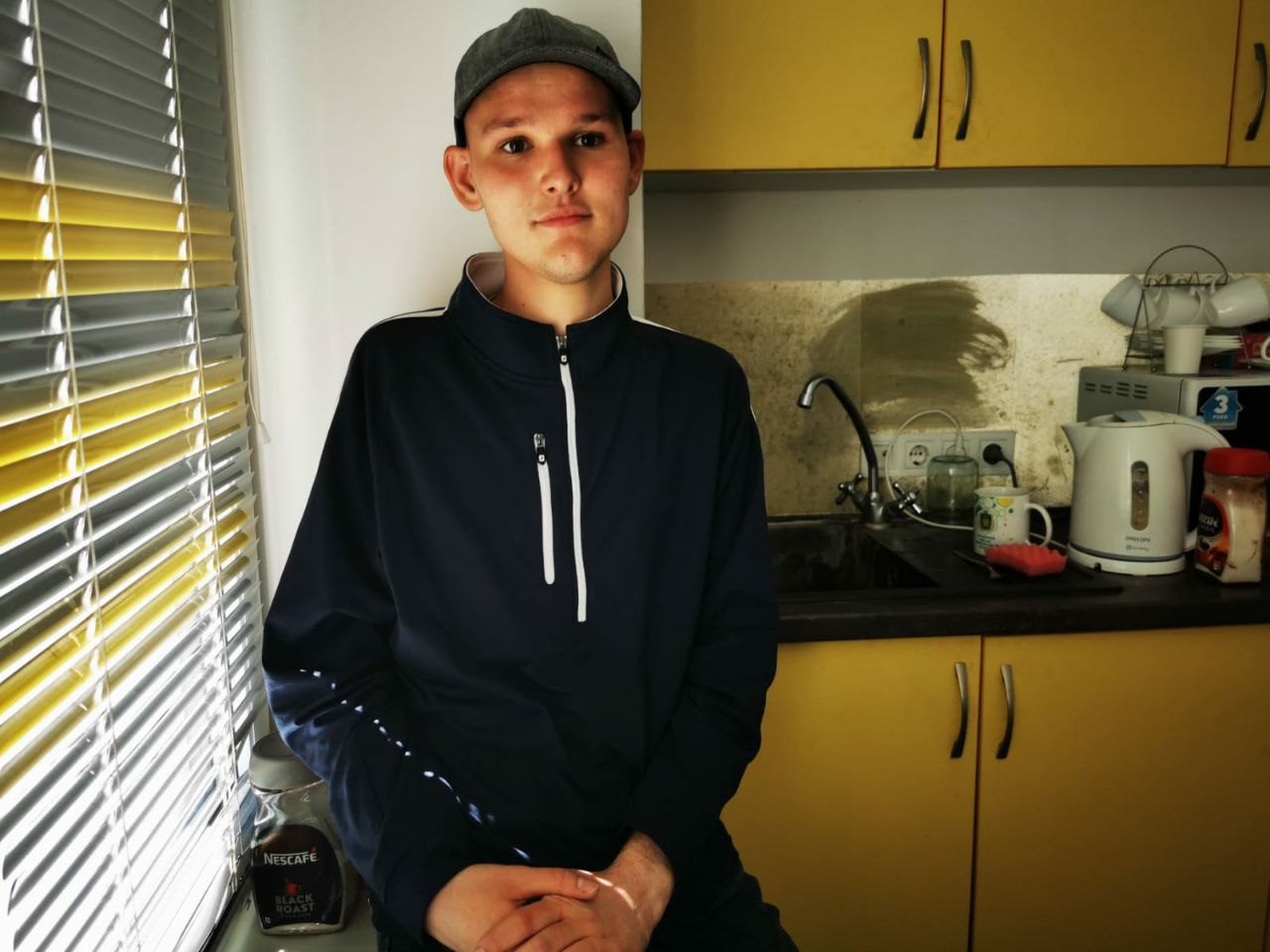
In the occupied city without electricity, heat and gas, Vadim immediately began to help others: he took food from visiting volunteers on the outskirts of the city, cooked over a fire together with his neighbours, and delivered elderly people to their apartments.
“I met them on the track, picked up packages,” Vadim recalls. — My neighbour and I built a slab of bricks, chopped firewood and cooked soup, porridge, and tea. A neighbour brought us a gas bottle. Tanks drove past us. At first, relatively normal military men came across. On March 1 I go with packages. Stop, ask, “where”? At parting, it is advised to be careful. Another time, a neighbour talked to them, she is a Muscovite, and she seems to be herself to them. I gave them everything that I had with me, somehow agreed that we would not be shot.”
Threats to kill were constant – for the fact that just a person is walking down the street because he seemed suspicious. The military suspected almost all residents that were working for the Ukrainian army and passing information to it. Many of the Buchans we spoke to said that everyone in the city quickly understood the unspoken rules of behaviour in the occupation. You walk down the street, you see the military – you have to stop so that they can see the hands. Don’t run, don’t turn your back. People adapted, and passed information to each other even without communication. Someone was drinking. An elderly resident of Bucha, drunk, shouted to the soldiers “Glory to Ukraine!” He was not killed, but severely maimed – his nose was broken, and his leg was pierced with a bayonet.
Vadim says he was threatened with death four times. According to him, the military had a rotation several times, and each time the new ones turned out to be worse than the previous ones: “In front of my grandmother, a pensioner who went out to cook food was killed. She herself barely had time to go into the entrance, until they noticed. Once we saw a dead Russian, there was a machine gun nearby. The neighbour wanted to take him away – she knows how to shoot – but I dissuaded him, I was afraid that because of this they would blow up our house if they found out.
Neighbours secretly filmed the abductions of civilians from the windows, and Vadim passed the recordings to the SBU in a messenger. Upon learning that someone was following their crimes and reporting them to the Ukrainian side, the Russians began raiding the apartments. They looted and took out TVs, household appliances, carpets, and men’s clothes.
Buchansky district suffered more than others in the Kyiv region. According to the administration, 1,080 deaths have been accurately confirmed here, a third of them in Bucha itself. Most of the civilians were killed on the street with the peaceful name of Yablonskaya, where the Russians set up headquarters, a prison, and a torture chamber in house 144 – the detainees were taken there, they were tortured and shot there, many in Bucha told about this. The bodies were buried in mass graves on the church field, but some of the dead remained in the shot cars and on the street.
On March 8, Vadim and his mother left Bucha after a shell hit their house. “The city was mined, there were snipers everywhere: in the trees, on the roofs, in the windows,” he says. – We left on foot through the minefield under gunpoints. We left for Mukachevo in Transcarpathia. Grandmother stayed at home – the elderly were less likely to be touched. The apartment had no windows or frames. Once a sniper shot at her but hit the remnants of the glass. Grandmother was wounded in the leg by shrapnel. The trace of the bullet remained on the ceiling.
After the occupation was lifted, Vadim returned to Bucha. Now he helps people look for missing relatives, and draw up documents for compensation for the loss of property, humanitarian aid and temporary housing. The bodies of the dead are being searched through telegram channels with an archive of photographs of the dead. If nothing is found there, then the body is in the refrigerator, or the person is missing. Perhaps he was taken prisoner.
Vadim’s acquaintances from Russia do not believe in the crimes of the army, but he himself wants an investigation and trial for those responsible: “My friend from Russia has a military husband and son. I called and asked: “What are your people doing with us?” She said that in fact there were no atrocities and executions of peaceful people, that it was a lie, that they had come to liberate us, that we were artists, we were pretending. I would like to convey to Russia, to show what they are doing. I have a hatred for these military men, I would shoot those who mocked our people. But if you dwell on these thoughts, you can bite yourself from the inside. I hope they are brought to justice.”
“He is your Nazi, and you are a Banderovka!”
There is a bustle of business in the Buchansk administration. Workers are photographed in front of the building. None of the survivors of the occupation in the city was sure that they would survive. Opposite is a hospital and a square where women walk with children, kids play by a dehydrated fountain. A pack of stray dogs appears. They, growling, occupy the fountain and position themselves around it. The serenity of the picture seems to blow away: alarmed mothers run to the children, put them in strollers and hastily leave the square, it remains at the mercy of the growling pack.
Here I meet Natalia. She lives on Yablonskaya street. Delicate facial features, self-absorbed gaze, high forehead, slicked-back hair, discreet makeup, quiet voice. Natalia has not yet told anyone about the tragedy she experienced. Agrees to talk, but without a surname.
Natalia has a husband and a son, both Igors. On March 4, about a dozen Russian servicemen burst into her house with St. George ribbons on their sleeves and helmets. They snatched out my husband’s mobile and realized that he was connected with the defence and the Ukrainian military and that he was transmitting data on the number and actions of the invaders.
“They tied my husband’s hands and were going to shoot him, but first they decided to interrogate him about the Armed Forces of Ukraine,” recalls Natalia. – They took me to a neighbouring yard, and ordered me to undress – they were looking for a swastika. He pointed to his tied hands: “How can I undress?” The rope was removed, but Igor continued to keep his hands behind his back. Having seized the moment when the convoy was not looking, he jumped over the fence and ran away. I see him running into the house, frightened and blue. He shouted to remove from the house a suit of Zaporizhzhian Cossacks, sewn for the reconstruction of the historical club in Kholodny Yar. My son and I immediately found and burned everything suspicious: a suit, Ukrainian flags, stripes with a trident.”
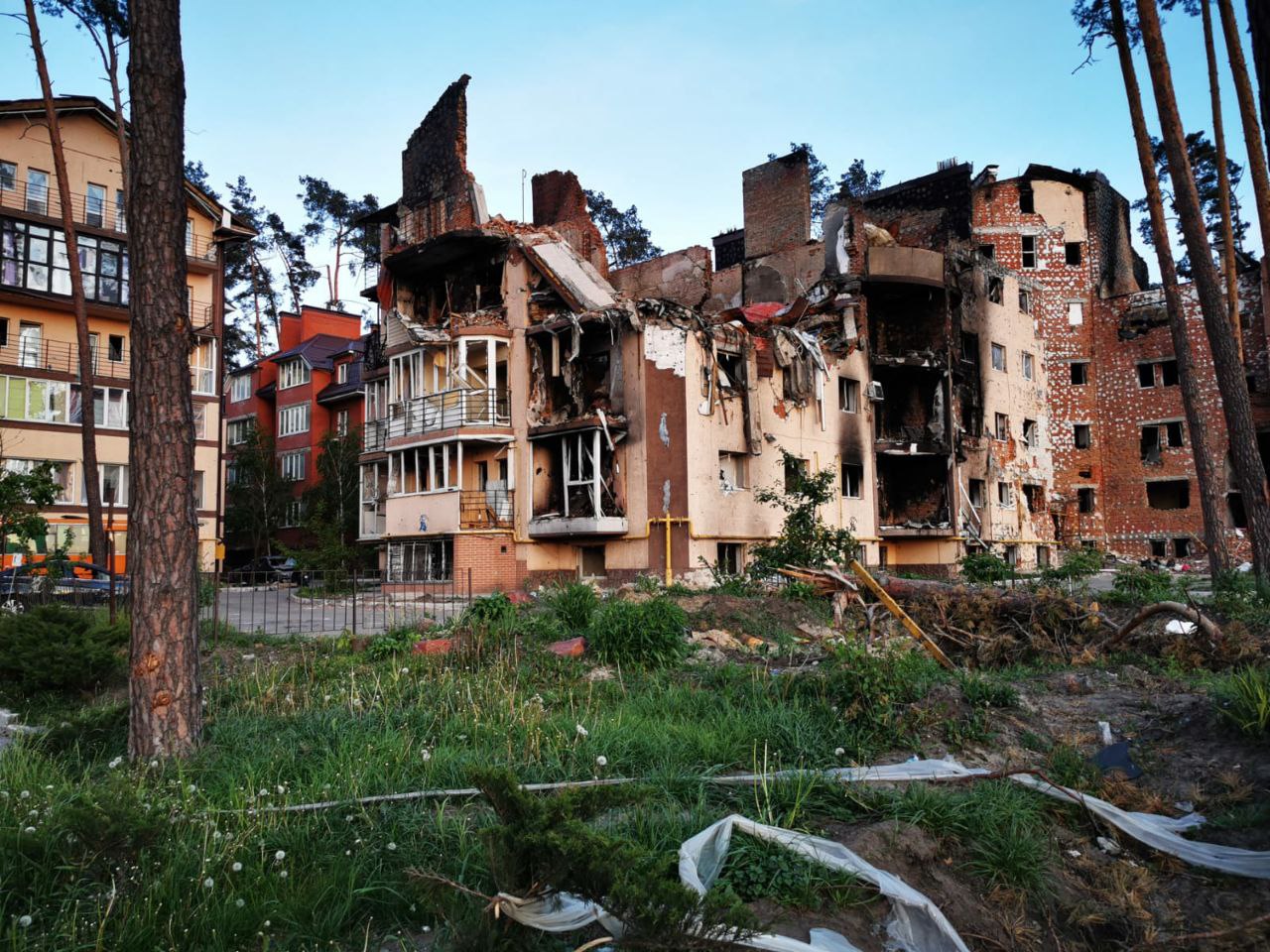
That same evening, the military came again to look for her husband. Igor was hiding in a neighbouring house, with his mother. Natalia told the military that he had probably already been killed. One of those who came said: “He is your Nazi, and you are a Banderovka! We’ll cut off your fingers if you don’t tell me where your husband is.” Natalia was ordered to put her hand on the table but did nothing.
The woman was taken to another headquarters on Vodoprovodnaya Street. Three officers interrogated her about every photo on my husband’s phone, every number, in detail about the defence. She realized that the Russians were watching them even before the war because they knew that her husband liked to shoot on the porch, but did so only on New Year’s Eve. Natalia says that they did not get anything from her, and then the officer ordered one of the soldiers to shoot her.
Natalia cries, remembering how she went to the execution. “I didn’t feel the ground under my feet,” she says. The soldiers scared her with a pistol and took her home, ordered her to take warm clothes and took her away again, this time with her son. The 93-year-old grandmother of her husband, and the mother of her mother-in-law, still lived with them, they did not touch her. On the street, the convoy showed corpses lying on the ground: “Do you want it too? Then think whether, to tell the truth, or not.”
The military wanted to lock them in the cellar of one of the houses and opened one, but there was already a body there, later Natalia found out that it was one of the tortured and executed women. As a result, she and her son were locked in a room in the house. “I asked: “Don’t torture, kill right away.” They answered me: “It will be an easy death for you.” They waited all night to be shot. I don’t know what held them back, maybe a prayer, a psychic gave it to me, ”recalls the woman.
“My family, rise, wake up, revive / My ancestors, cover with a sacred cover, give strength, give anger, give hatred, give love, give what will lead us to victory / Heaven and earth, become a dome and support / Native gods, bless,” Natalya read 13 times.
The woman spent the night of March 7-8 in captivity. The next morning, a soldier came to her to congratulate her on International Women’s Day. Natalya asked to be allowed to go home to feed her grandmother, who had to cook on a fire, without electricity, gas and water. The occupiers decided to let her go – apparently, Natalya suggests, in order to catch her husband. They went with her to her house. For a long time, they searched for Igor’s traces in the fresh snow, but there were none – Igor left the city at night, and his mother-in-law later told him about this.
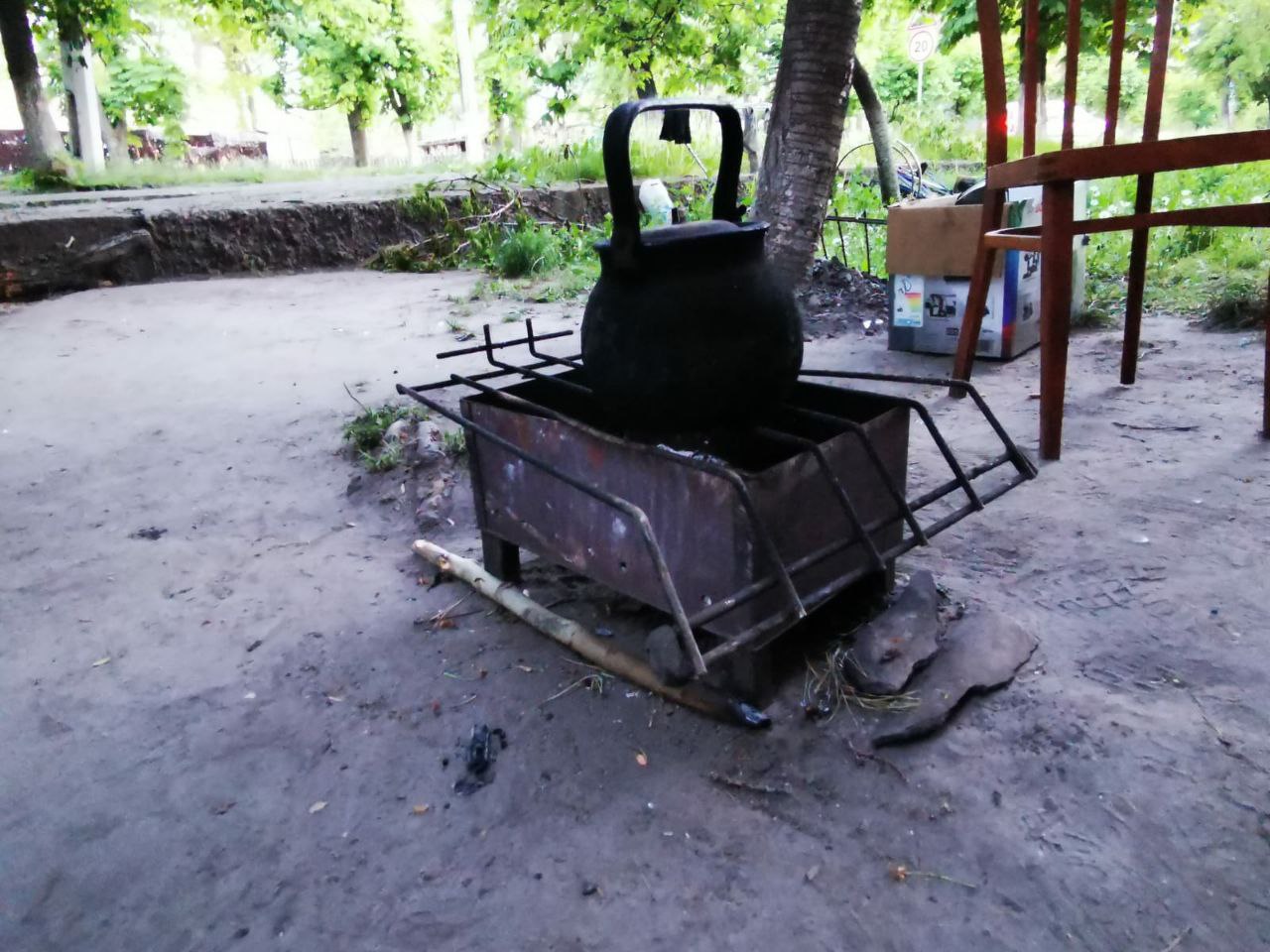
During the occupation people rescued stocks from the cellar. Natalia cooked vegetables and meat, played for time so as not to be captured again, and cooked food for her grandmother and dogs: a mongrel and a husky. On the evening of March 8, an officer came, Natalia asked for a name, and he laughed: “Would you like to name all three?” She appeased him as best she could, calling him, like the soldiers, “senior.” I understood that if you say an extra word, it will shoot you in the head. They again wanted to take her to the headquarters for interrogation, but she begged to stay: “Let me cook the stew so that the meat does not disappear, do not throw it away to me! There is still no other food, we should not starve. She put a large boiler and began to wash the cans. The officer was taken aback, but said nothing, and brought a soldier to guard us at night. In the morning, my grandmother went into the kitchen and said: “Soldier, shoot me.” He grunted that he would not, and was silent.
Natalia’s family lived in custody for twelve days. Soldiers, the same age as her son, were constantly in their house. She says that during the shelling, she and her son were not allowed into the cellar, they said that “it’s your people who are shooting.” She objected: “And in my opinion yours. You came to fight – go to the fields and fight, why are you hiding among civilians, around our necks?
The soldiers, as Natalya recalls, behaved differently. Someone vehemently agitated for Russia, someone cried and wanted to go home, and someone justified himself and said that they were shot for refusing to fight. “I said that they would still be shot here for bullying,” says Natalya, “They answered that they did not kill civilians. Then one of them died, and they said it was because of my Nazi husband. The elder said: “I have a task to kill you, but I don’t want to. I didn’t kill my family in Syria either.” He reasoned that there were few cartridges and that this was the last place where he fought. According to him, even in Syria, there was no such war as here.”
Natalia tried to pay off, offering things and money, but during the search, the military already took away everything they wanted: gold jewellery, and men’s socks. A few days later, without warning, her mother-in-law left the city. My grandmother had a stroke, her face was paralyzed. There were no doctors, they nursed her in the field as best they could and fed and bathed her together with her son, and raised her to the potty.
The Russian military came to the house of the mother-in-law with a search. We found his photo and military ID and realized that she was Igor’s mother. The officers were furious that Natalya concealed her relationship with her neighbours, they took her son to the headquarters, threatened to cut off her ear, threatened to shoot her in the knee, and they began to ask her again about her husband. New searches and interrogations continued for several days. Then he and his son were ordered to write everything they know about their husband. “We kept to the strategy that we lived separately, were not interested in each other,” recalls Natalya. – Nevertheless, I had to write about a trip with my husband to the festival in Kholodny Yar (festival of reenactors). The elder came and announced: “Well, that’s it, we leave you alone.” I say: “How can it be, we have been writing stories for you all night!”
Two days later they returned to us again. They checked the house, the barn, the garage, dug the ground on the site – they were looking for weapons. The son was forbidden to leave the house under the threat of being shot by snipers. They also tried not to approach the window – they were afraid of snipers – in the kitchen, but they did not raise their heads above the windowsill.
On March 30, she overheard a conversation between soldiers: “And how can we fight here, bare ass”? The next day, the invaders left. Later, she recognized some of the tormentors from photos of soldiers from the 64th Separate Motorized Rifle Brigade. On April 12, my grandmother died. On that day, dead civilians were reburied in Bucha, there were not enough hands, and Natalia had to pay a lot of money for the funeral.
Natalia’s husband arrived only at the beginning of May. He identified two of those who interrogated him from the photo. They were Buryats. “All this puts pressure on me,” says Natalia. I try not to remember and not to think. It seems that all this was not in my life. Everything is fine now, but I’m still scared.”
“We called them lodgers”
I am waiting near the administration building for another local resident who agreed to tell his story. Nearby, a lonely pensioner complains that he has stopped showing the TV, he leaves the address and phone number, and the master will come to fix it. Another man is looking for a neighbour who disappeared during the occupation. An employee of the mayor’s office shows him a resource with an archive of photos of the dead, asks about the circumstances of the loss, and explains how to file an application.
Finally, we meet with Alexei Suchkov, who works here as the head of the housing and communal management and improvement department. Tall imposing man. Lives in Bucha on Rudenko Street in a private house on a church field. In 2014 he came from Donetsk, where he was the director of the Zuevskaya TPP and a deputy of the Donetsk Regional Council. “We left one war and came to another,” says Aleksey.
He did not want to live with the new government of Donbas. Alexey calls himself a Russian-speaking Ukrainian: his grandfather is from Omsk, and his grandmother is Ukrainian. Having moved to Bucha eight years ago, he bought land here and built a house where he lived happily with his wife, daughter and son. During the days of the occupation, the beautiful church field in front of his house became a mass grave for the murdered civilians. It had 67 bodies.
At six in the morning on February 24, Alexei saw through the window how Gostomel was burning. I counted 27 Russian helicopters over the city. A reconnaissance helicopter bombed the city, landing troops landed from others. Fights have begun. From the village of Borodyanka, Russian soldiers entered Bucha. Ukrainian troops fought back, and shells flew through residential areas, mostly empty. “It hit the neighbour’s house, we thought we were going to die,” recalls Aleksey.
Since March 8, the fighting has intensified. According to Aleksey, it was then that they were informed that the Kadyrovites had seized a military unit near Gostomel. Then the city was left without electricity, and the connection was lost. There were snipers in high-rise buildings in the neighbourhood. All the space around us was shot through, even in our yard we were convenient targets.
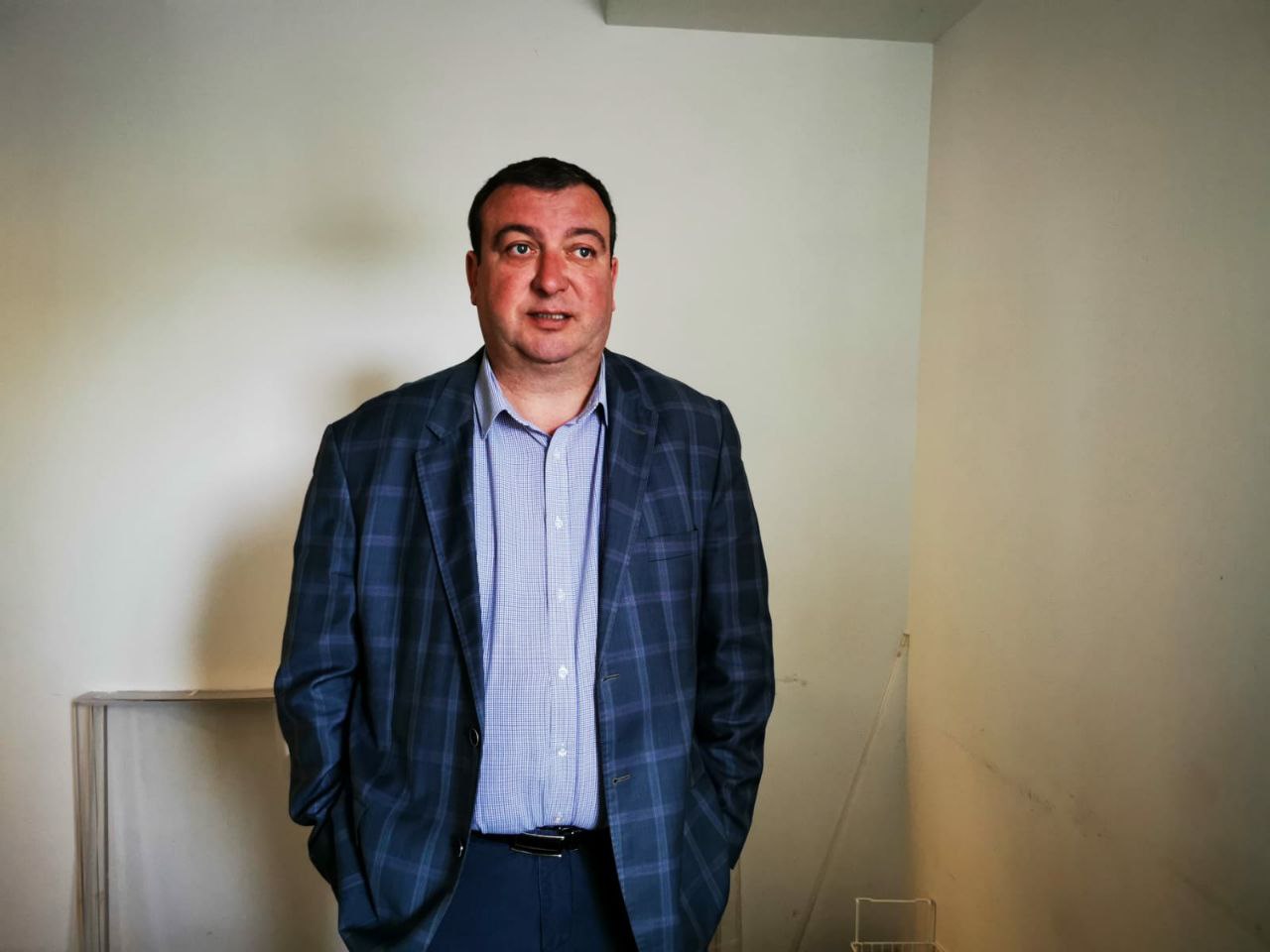
On March 14, infantry fighting vehicles, armoured personnel carriers and trucks with the letter V first appeared on Rudenko Street. The military walked around the yards, took the residents out into the street, checked the documents, examined the hands, and looked for calluses on the index fingers – from the trigger. Son Alexei is 19 years old. He was forced to undress, looking for Nazi tattoos. Then the family was told to go into the house and lock themselves up. Soon several Buryats and Russians returned with heavy equipment.
Aleksey hid the SIM cards in advance and buried them in the garden. By that time, the family already knew everything about the atrocities of the Russians in neighbouring villages. To avoid the worst, Alexei himself asked the soldiers to check his house. According to him, in empty houses, the military broke doors with sledgehammers and smashed windows. They settled twenty people in the house, their KrAZ trucks (trucks) stood at the gate. They did not enter the houses where people stayed, they only checked documents.
An infantry fighting vehicle was driven into Alexei’s garage, and an armoured KrAZ was driven into the yard. He assumes that it contained weapons and ammunition. A Buryat commander named Petya told them: “Climb into the basement, take a fire extinguisher with you, now the mines will work.” Aleksey was afraid that shells would fly from Ukraine and cover them because enemy equipment was literally in their house. He tried to talk less with the soldiers, to answer in monosyllables and not to ask questions.
Together with their family, they were locked in the basement, and the yard was mined. Every morning at six in the morning shooting began, an hour and a half from Bucha they shot in the direction of Irpin. At seven the Russians left the yard. Before leaving, they let the owners out of the basement. The commander forced Alexei to close the gates in the neighbouring yards, from where their technician left: “Commander Petya warned the snipers on the radio “the local is coming out, do not shoot.” Mines flew past, shooting from all sides. White armbands were ordered to be tied on the sleeves, and the doors of the house should always be kept open.
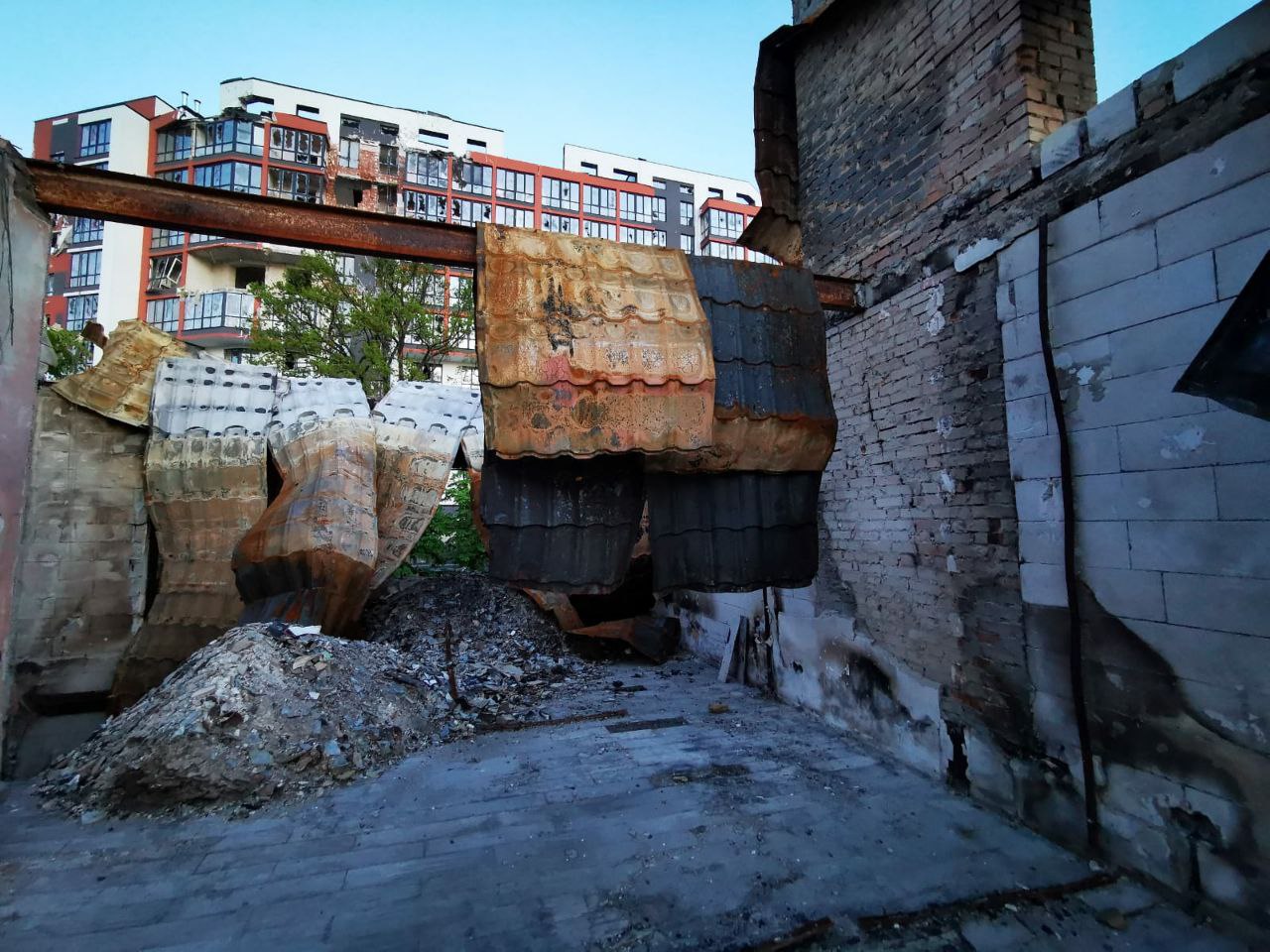
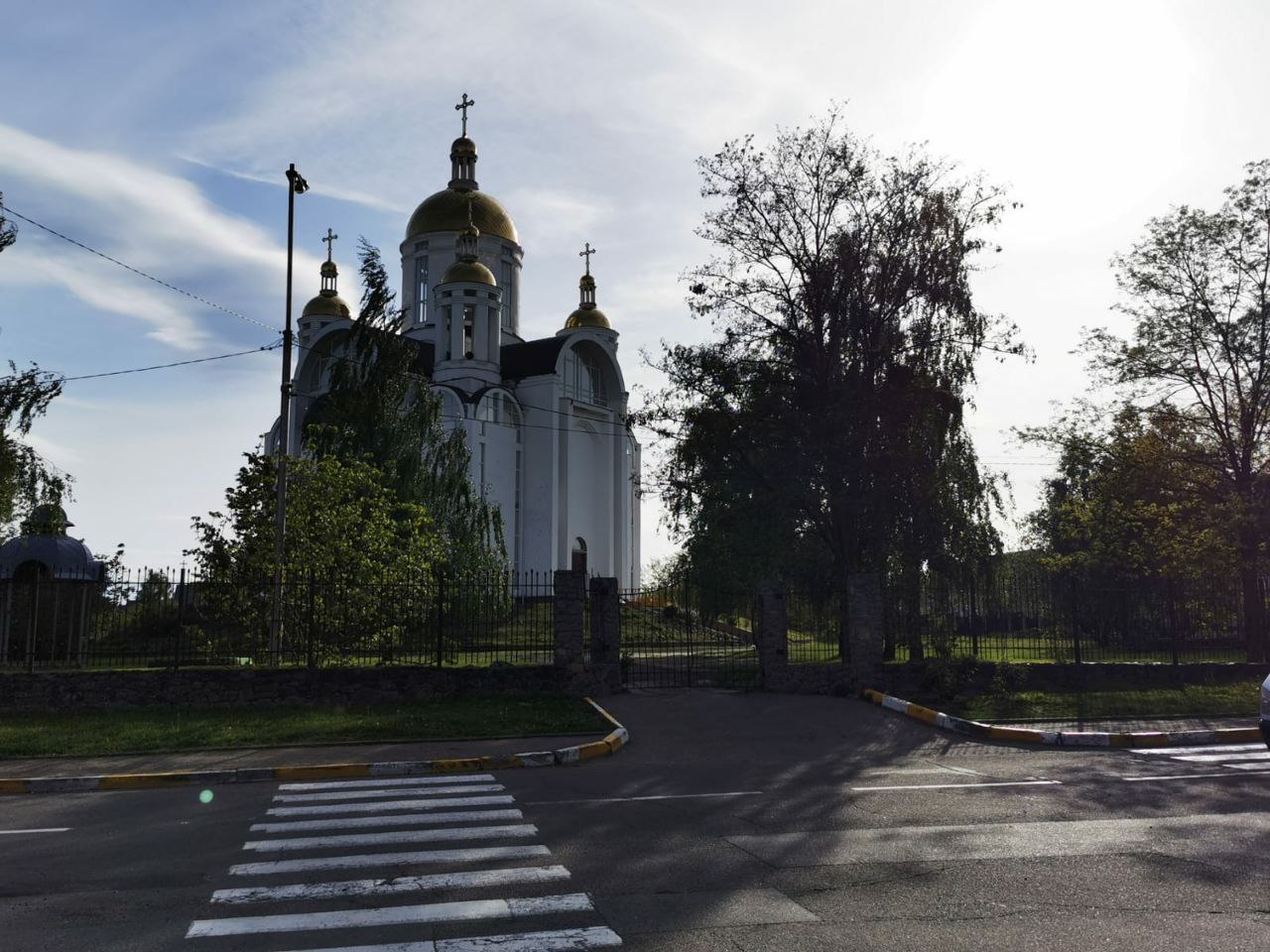
At 15:00 every day everything calmed down, and the “guests” returned. The hosts were locked up, while they washed themselves, cooked food, and chopped firewood. They slept in neighbouring houses, Alexei left the equipment with a driver and a mechanic inside. I could hear them coughing and talking.
Aleksey says that they quickly memorized the schedule of shelling (for example, at one o’clock in the afternoon one could safely drink tea) and learned to distinguish by sound where what shoots, where it flies and where it falls. She and her son, crossing the stretch marks, went for water at a neighbour’s grandmother. When the anti-aircraft gun behind the shopping centre fired, it was impossible to walk along the street, everything was shaky.
“Our lodgers, as we jokingly called them, constantly said that they came in peace, they want to free us, that we live under the Nazis, as in a textbook. The fifth day of their stay was the most unpleasant. The day before they arrived dirty, upset and angry, apparently, that day they got well in battle. The next morning they did not leave, the Buryat began to lecture me, give instructions, and then he was going to go shoot the neighbour’s dogs. I persuaded him not to do it.”
At lunch, Maxim, the son of Alexei, inadvertently looked out the window – and a sniper shot at him. Missed. The Buryat said that now Maxim would be shot. He ordered the soldier to put a bag over his head and tie his hands. Maxim was taken to a neighbouring yard, at the request of his father not to kill him. “In an hour and a half, half my life has passed for me,” says Alexey and cries. All this time the commander told Maxim about his life. He stood with a bag on his head and cried.
“My heart was breaking,” says Alexei. – The commander told me: “Go behind the car, I’ll let him go soon, but before that, you need to teach him a lesson.” But I don’t know how to teach him a lesson. I hear him talking very rudely to his son: “put your foot on the running board of the car,” and to the soldier: “Bring a cleaver, I’ll cut off his leg now.” I shout: “Petya, why, what will I do? There is no medicine, he will die from a painful shock! ”, And then I hear a blow. Hit with an axe next to the leg. He untied his son’s hands and said: “Say thanks to your father, he gave you a second life.” And he let go.”
On March 26, the military left. The grandmother, to whom Alexey went for water, said that her husband had died. He was ill and completely weakened without medication and heating. She asked for help if something happened. “We need to bury, but something terrible is happening on the street, people are being shot,” says Alexei. – He called two neighbours, wrapped up grandfather and brought him to the church field. There are soldiers standing there. They say: “leave it here.” I began to ask: “we will bury, otherwise there will be trouble.” He asked to call the commander, and the soldier replied: “We are our own commanders here.” I persuade: “allow me to bury at least a meter, and then either we will agree with your elders, or with your government, or, as it will, we will rebury.”
He allowed me but forced me to go around and climb over the fence, along with the body of my grandfather. We put a cross made of birch branches. The killed civilians were buried here by the locals.”
When the withdrawal of Russian troops from the Kyiv region began, Alexey broke a board in the fence and, together with a neighbour, watched – they counted 98 pieces of equipment on the highway.
“The tank is driving, suddenly stops, turns the turret and shoots anywhere. On the other side, bang! They covered their retreat,” Alexei describes. – On April 2, Ukrainians entered the city. My wife and I sent them to the administration, her leg was injured by a shell, and we stand crying. I grew a beard, I didn’t shave for several weeks, and I lost 16 kilograms. But when the Ukrainian flag was raised in the centre of Bucha, I felt good.”
AUTHOR Lydia Mikhalchenko
EDITOR Ilya Panin
The Anti*Capitalist Resistance Editorial Board may not always agree with all of the content we repost but feel it is important to give left voices a platform and develop a space for comradely debate and disagreement.
Art Book Review Books Capitalism China Climate Emergency Conservative Government Conservative Party COVID-19 Creeping Fascism Economics EcoSocialism Elections Europe Event Video Far-Right Fascism Film Film Review France Gaza Global Police State History Imperialism Israel Italy Keir Starmer Labour Party London Long Read Marxism Marxist Theory Migrants NATO Palestine pandemic Protest Russia Solidarity Statement Trade Unionism Trans*Mission Ukraine United States of America War

